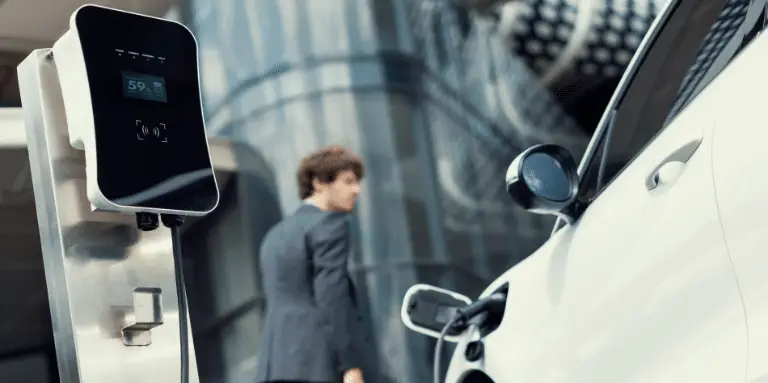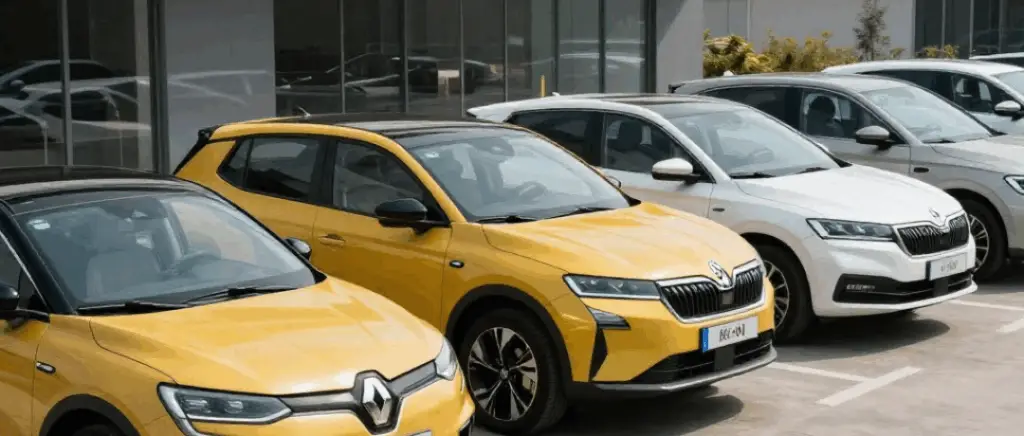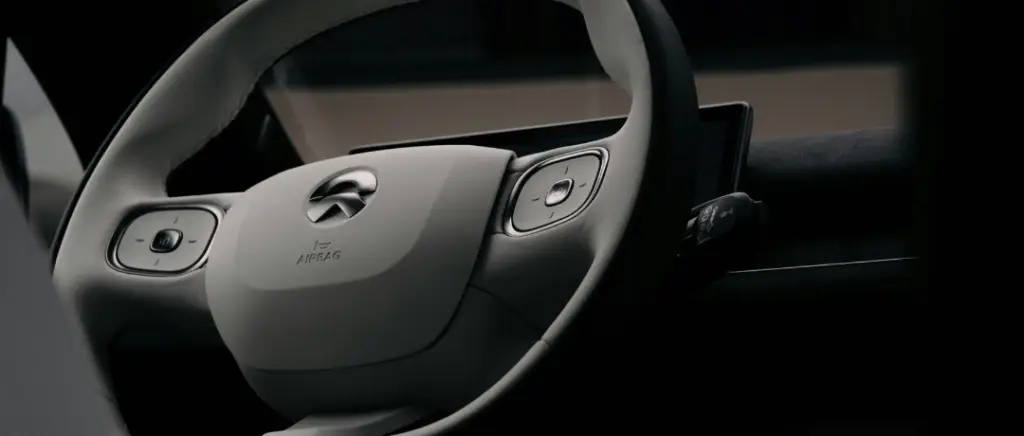Who pays the recharging costs for company cars?
Is it compulsory for employers to cover the cost of commuting to and from work?

The cost of recharging company electric cars is generally covered by the employer, but is not compulsory for journeys between home and work. Unlike public transport, for which the employer must cover 50% of the costs, there is no legal obligation to cover the costs of individual transport, including electric vehicles.
However, many companies choose to cover these costs to encourage the adoption of electric vehicles, build employee loyalty and promote sustainable mobility.
This can be done in different ways, such as reimbursing actual expenses, using increased mileage allowances for electric vehicles, or installing charging points at the workplace.
Can my employer finance the installation of a charging point at my home?
Employers can indeed finance the installation of a home charging point of an employee who has a company electric car. Although not compulsory, this practice is becoming increasingly common, as it offers a number of advantages. It allows the company to encourage the adoption of electric vehicles, simplify the management of recharging for its employees and benefit from cheaper electricity rates at off-peak times.
Financing can cover the installation of the charging point as well as the electricity costs associated with recharging the vehicle. This solution also makes it easier to track and reimburse recharging costs, which can be managed via connected monitoring systems or specialist fleet management software.
It is important to note that the electricity used for recharging, whether supplied free of charge or at a reduced rate by the employer, is considered as a benefit in kind tax-free for the employee.
NOTES FROM 1ᵉʳ JANUARY 2025, FREE CHARGING OF ELECTRIC VEHICLES AT WORK WILL NO LONGER BE AVAILABLE TO EMPLOYEES.
What happens to a recharging point installed on an employee's premises when the employment contract ends?
When the employment contract ends, the charging point installed at an employee's home generally remains with the employee. If the charging point is not removed, URSSAF provides for specific tax and social security treatment: the employer's contribution is excluded from social security contributions, limited to 50% of the actual expenditure incurred for the purchase and installation, with a ceiling of €1,000.
This treatment is designed to encourage the adoption of electric vehicles and facilitate access to charging points for employees, even after their contract has ended. If the charging point is withdrawn, the purchase and installation costs borne by the employer are fully excluded from social security contributions.
In short, leaving the charging point with the employee after the end of the contract benefits from advantageous tax and social security treatment, encouraging the long-term use of electric vehicles.
Is the use of a company charging point a benefit in kind?
Since 1 January 2020, the provision of an electric vehicle charging point by the employer in the workplace has not been considered a benefit in kind, allowing employees to charge their vehicles free of tax or social security contributions until 31 December 2024.
However, there are two exceptions: if the employer pays all or part of the cost of installing the charging point at the employee's home, 50 % of this payment is considered a benefit in kind and must be included in social security contributions; similarly, if the employee uses the charging point to recharge a plug-in hybrid vehicle for private use, 50 % of the cost of the electricity consumed is added back into social security contributions.
It is important to note that the tax exemption only applies to electric vehicle charging points installed in the workplace, even if they are accessible to customers or visitors to the company, and does not apply to charging points installed in employees' homes or to plug-in hybrid vehicles.
How does electric recharging work for company cars?
The cost of home recharging
Home charging of company electric vehicles is a practical option for many employees. Here's how it usually works:
- Installation: The company can pay for the installation of a charging point at the employee's home.
- Metering: A dedicated electricity meter or intelligent metering system is often installed to accurately quantify the electricity used to recharge the vehicle.
- Reimbursement: The company reimburses the recharging costs to the employee, generally on the basis of the dedicated meter readings.
- Flat rate: Some companies opt for a flat-rate monthly reimbursement based on estimated average consumption.
- Top-up card: In some cases, the company provides a specific top-up card that can be used at home, the cost of which is billed directly to the company.
Company charging points
Companies are increasingly making charging points available on their premises for company electric vehicles. Here's how it usually works:
- Installation: The company installs charging stations in its car park or on its premises.
- Types of charging points: These can range from slow-charging (3-7 kW) to fast-charging (50 kW and more), depending on requirements.
- Access system: Bollards are often equipped with an identification system (badge, smartphone application) to control access and track usage.
- Charge management: An intelligent management system can be put in place to optimise charging according to vehicle use and electricity tariffs.
- Charging: Charging at the workplace is generally free for employees using company cars.
- Maintenance: The company provides servicing and maintenance for the charging stations.
- Reporting: Tracking tools enable the company to monitor the use of terminals and energy consumption.
How is an electric car charging point installed?
What are the advantages of electric company cars for employers and employees?
For the employerThere are a number of advantages to adopting electric vehicles: lower costs thanks to lower fuel and maintenance costs compared with combustion vehicles; tax benefits in the form of grants and measures to encourage investment in an electric fleet; improved brand image by demonstrating the company's commitment to the environment, which can attract customers who are more receptive to this approach; and, finally, greater compliance with new regulations requiring the gradual phasing out of polluting vehicles.
For the employeeThere are a number of advantages to using electric vehicles: substantial savings on fuel costs, particularly for home-to-work journeys or regular business trips; a specific tax regime with a 50 % allowance on the benefit in kind (capped at €1,800 per year) until 31 December 2024; a 20 % increase in mileage allowances for business trips made with a personal electric vehicle; a reduction in the tax on the use of electric vehicles.carbon footprint contributing to the fight against climate change, improved driving comfort (silence, absence of vibrations) and innovations in terms of safety, as well as personal enhancement through the use of an environmentally-friendly vehicle, reinforcing the feeling of belonging to a company that cares about the environment.
These combined advantages make company electric vehicles increasingly attractive to companies and their employees.
For further information: Charging points for employees: what are the benefits?
Find out how our customer easily installed a recharging solution at his company with Beev!
Steps to follow to submit a claim for reimbursement of the cost of recharging a company electric car
Here is a detailed guide to submitting a claim for reimbursement of the cost of recharging a company electric vehicle, as well as advice on how to make the process easier:
To begin with, it's essential to keep meticulous records of all your charging. This includes detailed invoices for recharging at public charging points, consumption records from your home charging point and data from a connected charging point, if available at your home.
Next, make sure you understand your company's reimbursement policy. This can vary from reimbursement on an actual basis on presentation of receipts, a monthly flat rate or the use of an energy card supplied by the company.
To prepare your claim, gather together all the necessary documents such as the claim form, top-up receipts and details of business trips if required.
Once you have all the documents, submit your request to the appropriate department, usually Accounting or Human Resources, following the established internal procedure.
Make sure you keep a close eye on your request, and don't hesitate to follow up if necessary to ensure that everything is dealt with on time.
To speed up the process, use a connected terminal for automated monitoring of home recharges and opt for a company energy card to simplify recharging at public terminals. It is also advisable to submit your claims regularly to avoid accumulating supporting documents, to scan your documents for easier transmission and to use mobile applications where available to track and declare your top-ups.
By following these steps and providing clear, complete supporting documentation, you can optimise the processing of your claims for reimbursement of the cost of recharging your company electric vehicle.
Sustainable mobility package: up to €700 a year for electric cars
In France, the sustainable mobility package (FMD) allows companies to pay aid of up to €700 per year, exempt from social security contributions and income tax, for their employees' home-to-work journeys, thereby encouraging the use of environmentally-friendly modes of transport such as electric cars, self-service bicycles, public transport, car-pooling, and journeys by bicycle or electric scooter; to benefit from this scheme, employees must present proof of entitlement to their employer. Although not compulsory, this scheme, which can be combined with other aid such as the conversion premium or the environmental bonuscan improve the quality of life of employees and reduce the environmental impact of companies.
To find out more, click here: Aid for the installation of charging points in 2024
Conclusion
Although not compulsory for home-to-work journeys, it is often adopted as a way of encouraging sustainable mobility. Companies can reimburse actual costs, offer higher mileage allowances, or install charging points at the workplace and sometimes even at employees' homes.
Company electric vehicles offer a number of advantages for employers and employees, including lower costs and tax benefits.
For more information, we've put together a guide to this topic to explore the different aspects in depth:
If you would like to find out more about the tax credit for in-car charging points 2024For more information, see our article on this subject.
Read our article about :
To facilitate this transition, Beev offers solutions for the purchase of electric vehicles and the installation of charging stations in companies.
Our experts will advise you according to your needs. Beev offers Tesla 100% electric vehicles at the best prices, as well as recharging solutions.





































